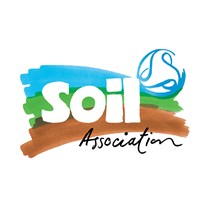
- Soil Association
- Causes and campaigns
- Protecting and celebrating forests

Protecting and celebrating forests
Our work with trees and forests
Trees and forests play such an important role for our health and the health of our planet. They improve soils, reduce the risk of flood and drought, capture carbon from the atmosphere and provide a home to countless species.
Trees and forests are at the heart of our work at the Soil Association. As both a Charity and Certification body, we work with:
- farmers,
- foresters,
- companies and
- citizens
to ensure forests around the world are protected.
Find out what we do to protect forests, then learn how you can help too.
Contents:

Our work with trees and forests - sustainable forestry:
Did you know? Soil Association Certification's Forestry team certify over 26 million hectares of sustainable forest in over 35 countries? That’s a tree-mendous number of trees being managed sustainably!
What is sustainable forestry?
With an ever-growing demand for wood products around the world, managing our forests in a way that works for local communities, wildlife, the planet and the forests themselves has never been more important. Some of the key principles of sustainable forest management include:
- Maintaining or enhancing the social and economic wellbeing of workers and local communities
- Conserving and restoring ecosystems and mitigating any negative environmental impacts of forestry
- Identifying and uphold indigenous peoples’ legal rights of ownership, use and management of land and resources
Certification offers an assurance that forests are well-managed for a range of social, environmental and economic benefits.
Soil Association Certification work with both The Forest Stewardship Council® (FSC®) and Programme for the Endorsement of Forest Certification (PEFC) Forest Management and Chain of Custody certification to support the protection of our forests.

FSC: FSC is the only wood certification scheme endorsed by major environmental charities such as WWF, Greenpeace national bodies and The Woodland Trust. The FSC label guarantees that the trees that are harvested are replaced or allowed to regenerate naturally.
Parts of the forest are protected entirely, in order to protect rare animals and plants. All the wood is tracked from forest to store, and every link in the chain of custody is certified, to make it clearly identifiable which wood is FSC certified and which is not.
Did you know? FSC protects the rights of indigenous people to use the forest. If they have sacred sites in the forest these are exempt from felling. The forest owner must use local workers to run the forest, and provide training, safety equipment and a decent salary. The forest owner is often obliged to support the community in other ways, such as through the development of schools.
PEFC: PEFC works throughout the entire forest supply chain to promote good practice in the forest and to ensure that timber and non-timber forest products are produced with respect for ecological, social and ethical standards.
Did you know? One quarter of the world’s forest is publicly owned, often managed by small communities. The PEFC Forest Management standards are tailored to family and community-owned forests, making this an ideal option for small forest owners.
Forestry Commission tender -
In 2019, Soil Association Certification also won a contract to certify public forests across Great Britain - that's as much land as London, Birmingham, Manchester and Leeds combined! If you've been to Forestry Land Scotland, Natural Resources Wales, or Forestry England sites, chances are that you've visited one of the amazing forests that we're responsible for certifying!

Our work in agroforestry - planting trees on farms:
Agroforestry is the practice of combining agricultural crops or livestock with trees and shrubs, to provide healthier soil, higher yields and vital homes for wildlife.
However, currently, only 3% of the UK’s farmland currently practices agroforestry. As a charity, we’re working with farmers across the board to help transition towards farming that’s better for the climate, for nature and for our health.

How our organic certification work is helping in the fight against deforestation:
The Soil Association has higher organic standards than the legal minimum for organic food in many key areas, delivering higher levels of animal welfare, and protecting the health of humans, animals and the environment.
When our higher standards result in changes to the law, this influences all organic farmers and food businesses in the EU - who then have to meet that law. This directly changes practice and shifts the baseline: today’s higher standard becomes tomorrow’s minimum. Read our organic standards here.
Behind the scenes, the Soil Association Standards Team is working hard on our conservation standards in particular. We’re developing new ways to implement our Standard 2.1.7 (Maintaining High Conservation Values - HCV), and are raising the profile of issues like deforestation in international organic forums.
-
Learn how you can help protect forests
Together, our positive actions all add up. There so many things you can do to support our work, and the work of those around the world who are protecting forests.
Find out more


